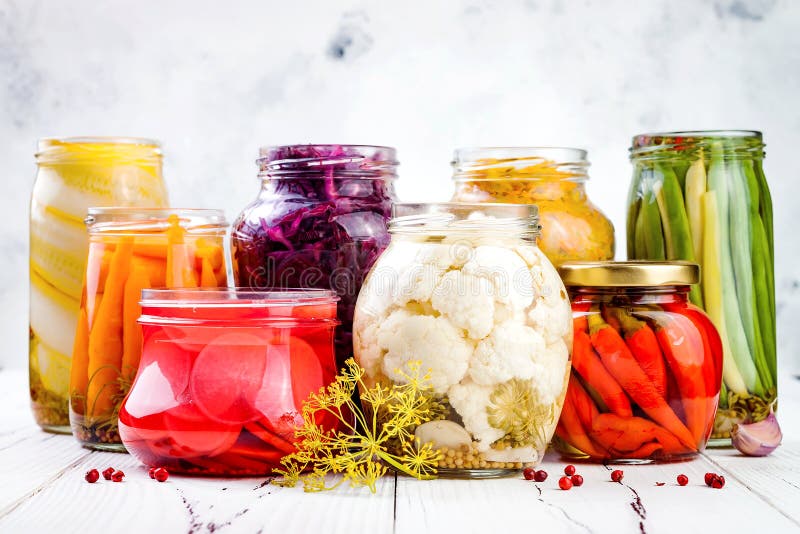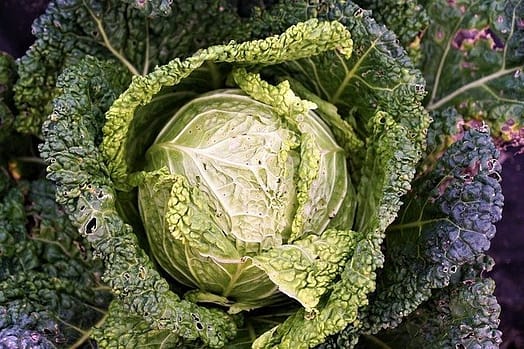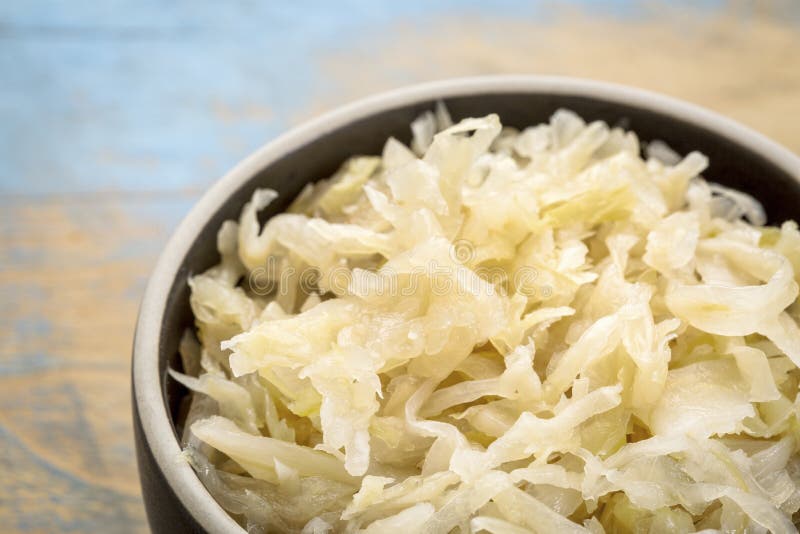Vegan Globetrotter is supported by our audience. When you purchase through one of our links, we may earn a small affiliate commission. As an Amazon Associate I earn from qualifying purchases. Your cost is not affected.
==================
ULTIMATE GUIDE TO SAUERKRAUT HEALTH FACTS
For good digestive health, consider these sauerkraut health facts. Nutritionists know that the beneficial probiotics found in Sauerkraut provide essential factors for health. However, research continues to find specific types of beneficial bacteria found in Sauerkraut and other fermented foods. However, we already know that they feed the good bacteria in your gut and help battle inflammation.
Research has shown that probiotics help alleviate some digestive symptoms, such as gas, bloating, and constipation. Moreover, it may be helpful for those with conditions such as Crohn’s and ulcerative colitis. Besides this, there are several sauerkraut health facts for human beings.

What is Sauerkraut?
Sauerkraut is a type of inflamed cabbage with significant health advantages. Moreover, it believed that it originated more than 2,000 years ago in China. Fermentation was one of the techniques used back then to prevent food from rapidly spoiling.
Sauerkraut survived the test of time in many cultures to become a familiar side dish and condiment. In Germany, where its name comes from, it is highly appreciated.
Sauerkraut health facts, nutrition, and health advantages well beyond fresh cabbage because of its fermentation. This article discusses ten sauerkraut health facts that will prove life-changing for you.

HOW MUCH SAUERKRAUT SHOULD I EAT?
You should eat about a tablespoon daily to get the gut benefits of Sauerkraut. By adding a small portion to your plate at dinner time, this is quickly done and dusted. Its estimated that were doing so helps with digestion and prevents constipation. Sauerkraut has low-calorie content and high fiber content, so why not give it a try?
In most grocery stores, you can buy canned or jarred Sauerkraut. It can use to add a distinctive flavor to foods as a condiment. However, it may also be eaten as a side dish or healthy snack.
10 Amazing Sauerkraut Health Facts.
It has many of the predicted health benefits of your typical leafy green since Sauerkraut is made of cabbage. The fermentation process, however, adds health advantages that are unique to Sauerkraut. Let’s look at what it can do for your body to add this food to your diet.
-
Sauerkraut is nutritious
There are several nutrients in Sauerkraut that are vital for optimal health. Sauerkraut is incredibly nutritious because it undergoes fermentation. A phase through which cabbage microorganisms digest and turn their natural sugars into carbon dioxide and organic acids.
The fermentation of Sauerkraut produces conditions that facilitate the development of beneficial probiotics that are also present in products such as yogurt and kefir.
Fiber, vitamins, and minerals are rich in Sauerkraut. Its probiotics also make it easier for your body to consume these nutrients. Moreover, making Sauerkraut more nutritious than raw cabbage or coleslaw.
-
Improves digestion
Research says that your gut contains more than 100 trillion microorganisms or “gut flora. “More than ten times the total number of cells in your body.
Probiotics, which are beneficial bacteria that serve as the first line of protection against toxins and harmful bacteria, are found in unpasteurized Sauerkraut. They can also promote digestion and good health in general.
After the use of antibiotics has been interrupted, probiotics like those in Sauerkraut will help improve the bacterial balance in your gut. However, it can help reduce or prevent diarrhea caused by antibiotics. It is easier to digest fermented cabbage than raw cabbage and decrease digestive symptoms such as gas and bloating. With some digestive disorders, such as IBS, Sauerkraut can also help.
-
help with weight loss
Some research has shown that eating foods rich in probiotics such as Sauerkraut can decrease the risk of obesity and help weight loss, but more research in this area needs to be done. Sauerkraut is a fantastic fiber source that helps keep you fuller for longer.
Eating Sauerkraut can often help you lose weight and keep it off. That is partial because Sauerkraut is low in calories and high in fiber, like most vegetables. High-fiber diets can hold you fuller for longer, which will help you minimize the number of calories you consume every day.
These effects, however, are not universal. Furthermore, numerous probiotic strains can have differing results. Further research is therefore required to evaluate the efficacy of sauerkraut-specific probiotic strains on weight loss.
-
Improve brain health
The brain has a close relationship with the stomach. It’s all about the plant and its connection to brain health and even stress reduction. The rise of mood-related minerals such as zinc and magnesium may decrease anxiety and depression.
That the type of bacteria in your gut may be able to send messages to your brain, factors affecting how it works and perceiving the world fermented, probiotic foods such as Sauerkraut, for example, lead to the growth of a balanced gut flora, which research suggests can help relieve stress and maintain brain health.
To enhance memory and alleviate symptoms of anxiety, depression, autism, and even obsessive-compulsive disorder, probiotics prove helpful.
-
Reduce the risk of cancers
Cabbage contains antioxidants and other beneficial plant compounds as the vital ingredient in Sauerkraut, minimizing some cancers’ risk. These compounds can help reduce DNA damage, prevent cell mutations, and block excessive cell growth, leading to tumor growth.
The process of cabbage fermentation can also produce unique plant compounds that suppress precancerous cell growth. An increased risk of cancer is associated with specific genes. Chemical compounds in the food you consume also modulate the expression of these genes.
Two recent studies indicate that decreasing the expression of cancer-related genes, cabbage, and Sauerkraut juice can help reduce cancer risk. In another study, researchers found a reduced risk of breast cancer for women who ate a lot of cabbage.
-
Promote heart health
Sauerkraut can contribute to a healthier heart. That’s because it contains a decent amount of fiber and probiotics, both of which may help reduce cholesterol levels. In individuals with hypertension, probiotics such as those found in Sauerkraut can slightly lower blood pressure.
Besides, one of the rare plant sources of menaquinone, more generally known as vitamin K2, is Sauerkraut. By stopping calcium deposits from forming in the arteries, vitamin K2 help minimizes heart disease risk.
The sauerkraut content of fiber, probiotics, and vitamin K2 can lead to lower cholesterol levels, slight improvements in blood pressure, and a lower risk of heart disease.
-
Contributes to stronger bones
There is vitamin K2 in Sauerkraut, which plays an essential role in bone health. In particular, vitamin K2 activates two proteins that bind to the vital mineral found in the bones, calcium.
It can be lead to stronger, healthier bones. Several studies have shown that bone health can benefit from vitamin K2. Several other studies have shown that taking vitamin K2 supplements decreases the risk of fractures of the neck, hip, and non-spine by 60-81%.
Some of these studies, however, used supplements to provide very high vitamin K2 doses. Therefore, it is unclear whether the same benefits will offer by the vitamin K2 you would get from consuming Sauerkraut alone.
-
Boosts immune system
A source of immune-boosting probiotics and nutrients is Sauerkraut. The bacteria that inhabit your gut can substantially affect your immune system to begin with. The probiotics present in Sauerkraut will help improve the bacterial balance in your stomach, keeping the gut lining safe.
A better gut lining helps prevent the “leakage” of unwanted substances into your body and triggers an immune response. The preservation of a balanced gut flora often helps prevent harmful bacteria from developing and increases natural antibodies’ development.
Besides, taking probiotic foods such as Sauerkraut frequently can reduce your risk of common cold and urinary tract infections.
-
Help reducing inflammation
Yes, that does it. Sauerkraut is more specifically related to gut health than inflammation, however. However, a healthy stomach can help reduce inflammation because it increases overall general health when an individual’s digestive system functions correctly.
Studies suggest that fermented cabbage, due to phytochemicals, has antioxidant and anti-inflammatory effects. Sauerkraut is located in its fermented juices and preserves by a heat process with enzymes, vitamins, and beneficial bacteria without losing any of them.
Sauerkraut contains many organic compounds that act as anti-inflammatory agents. As anti-inflammatory agents, phytonutrient antioxidants can double, reducing pain and irritation in the joints, muscles, or other inflamed areas.
-
Rich in Iron
As it improves metabolism and blood circulation, the high iron content in Sauerkraut helps improve energy. More significantly, a study published in the European Journal of Nutrition found that the fermentation phase improves iron bioavailability in its preparation.
In other words, a more significant amount of iron from Sauerkraut may consume by your body than many other foods rich in iron.
Make your own sauerkraut!
The homemade version offers perhaps the best way to reap the full benefits of this amazing food. While you won’t be able to enjoy it the same day you make it, the process could not be simpler!
Gather a head of cabbage, some salt, and a container to put your kraut in. This video shows just how simple it really is!
Conclusion
Sauerkraut is a fermented cabbage stored in a barrel or a jar and cut into short ribbons. There are a lot of Sauerkraut health facts. Not only is Sauerkraut very tasty and simple to produce, but it is also very safe to eat.
There are many benefits of Sauerkraut if you use it wisely. It has several different vitamins and minerals, including the secret to healthy bones and teeth, suitable for your immune system. Similarly, beneficial for the skin.
Read More:






Don't miss out
when new recipes and information are added!
Join our newsletter for free recipes,
healthy living inspiration, and special offers
You have Successfully Subscribed!